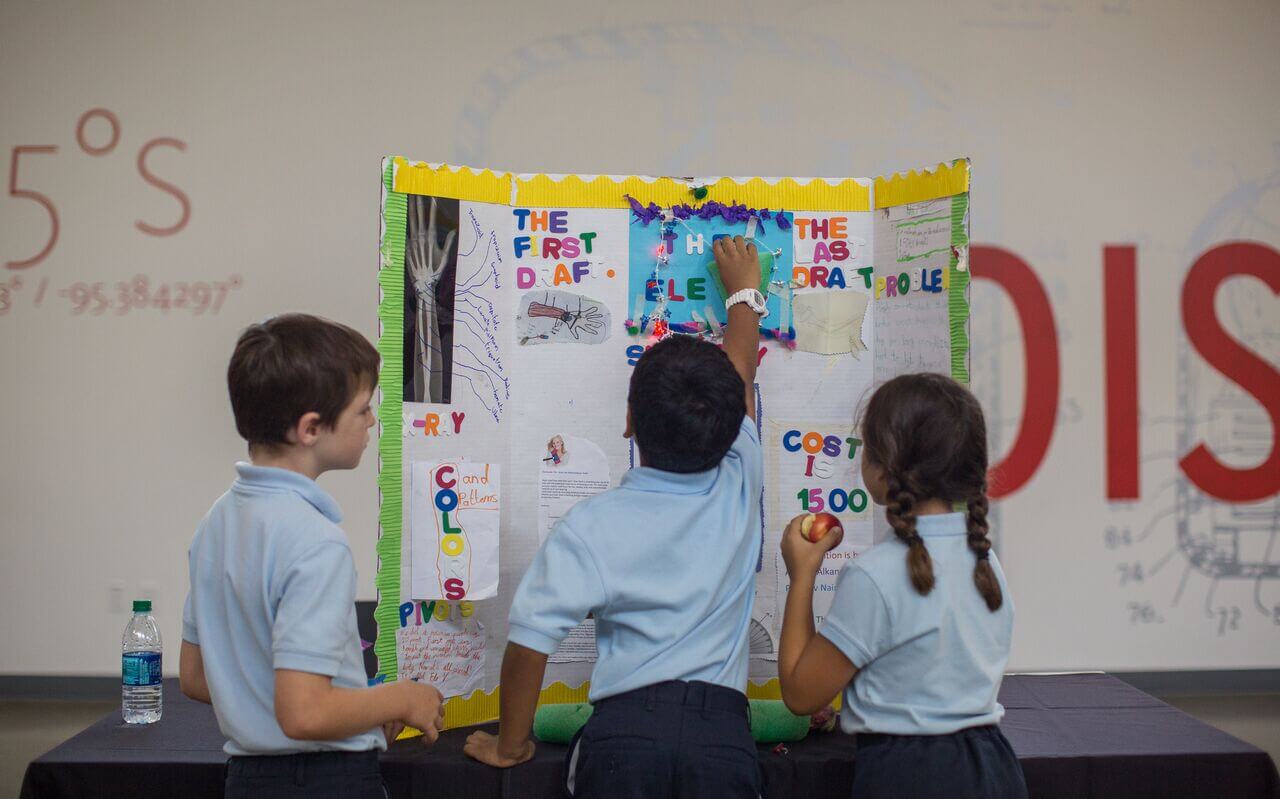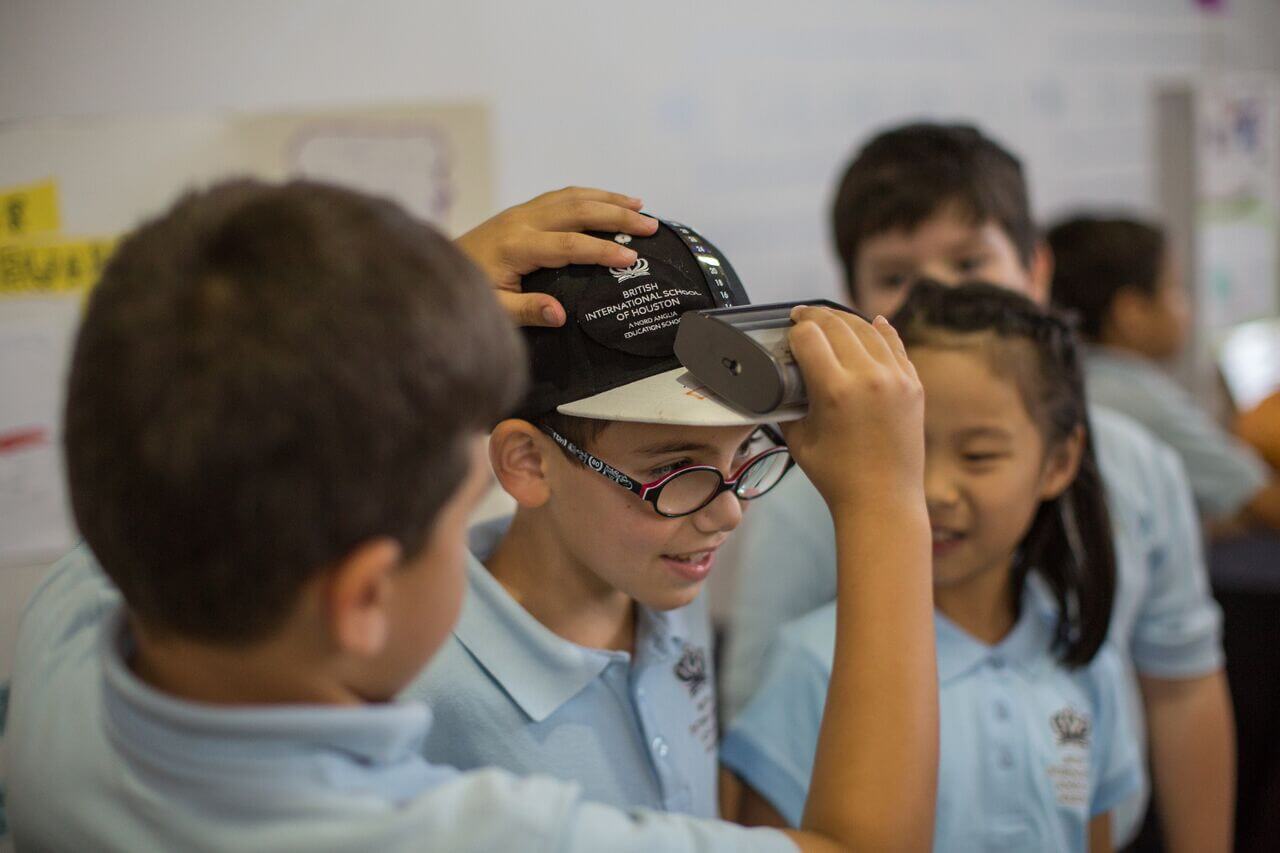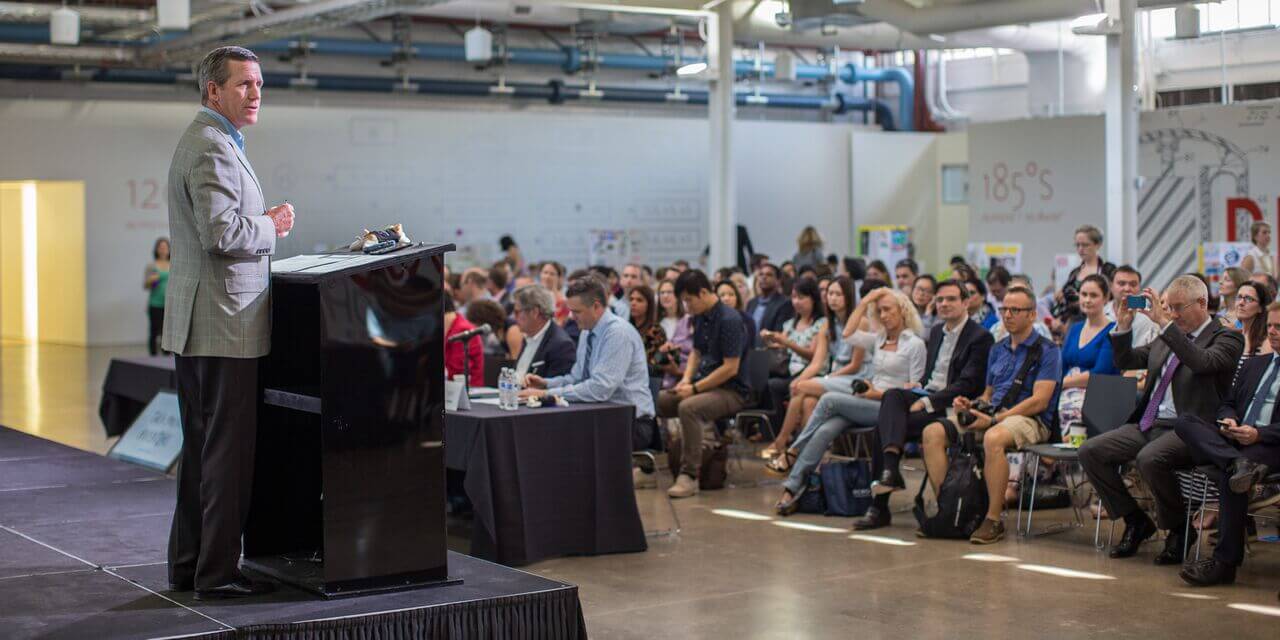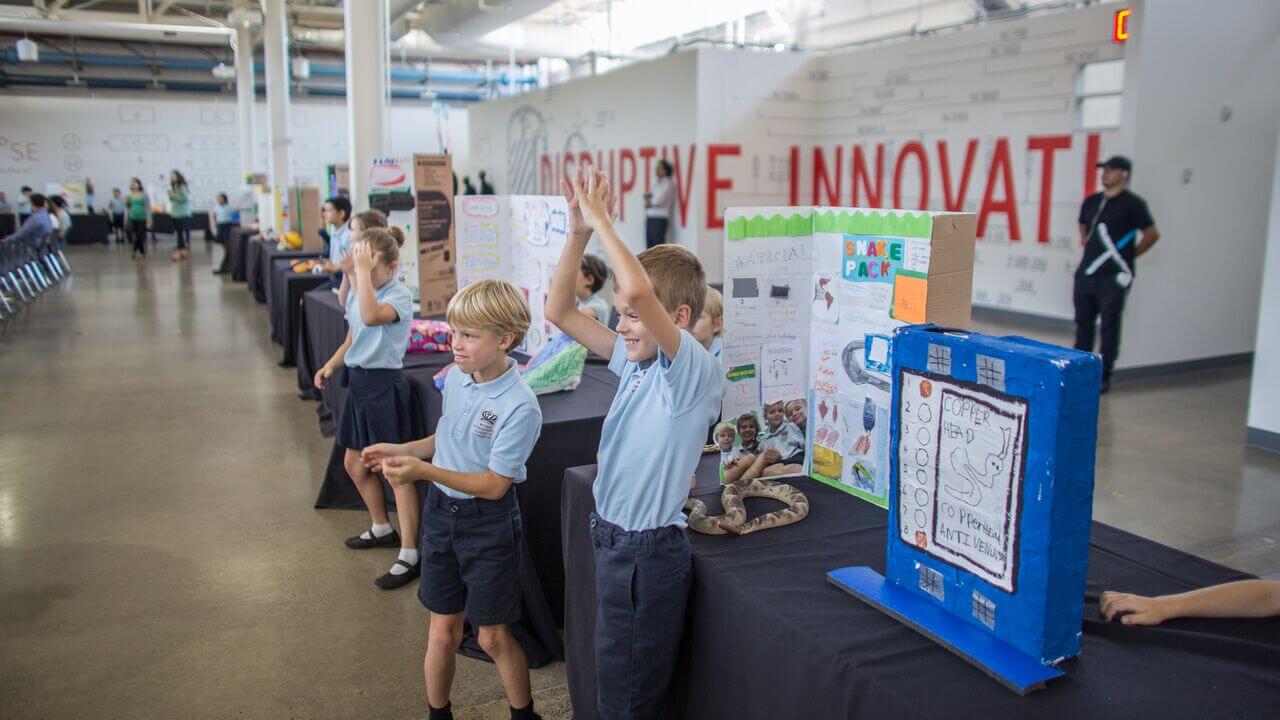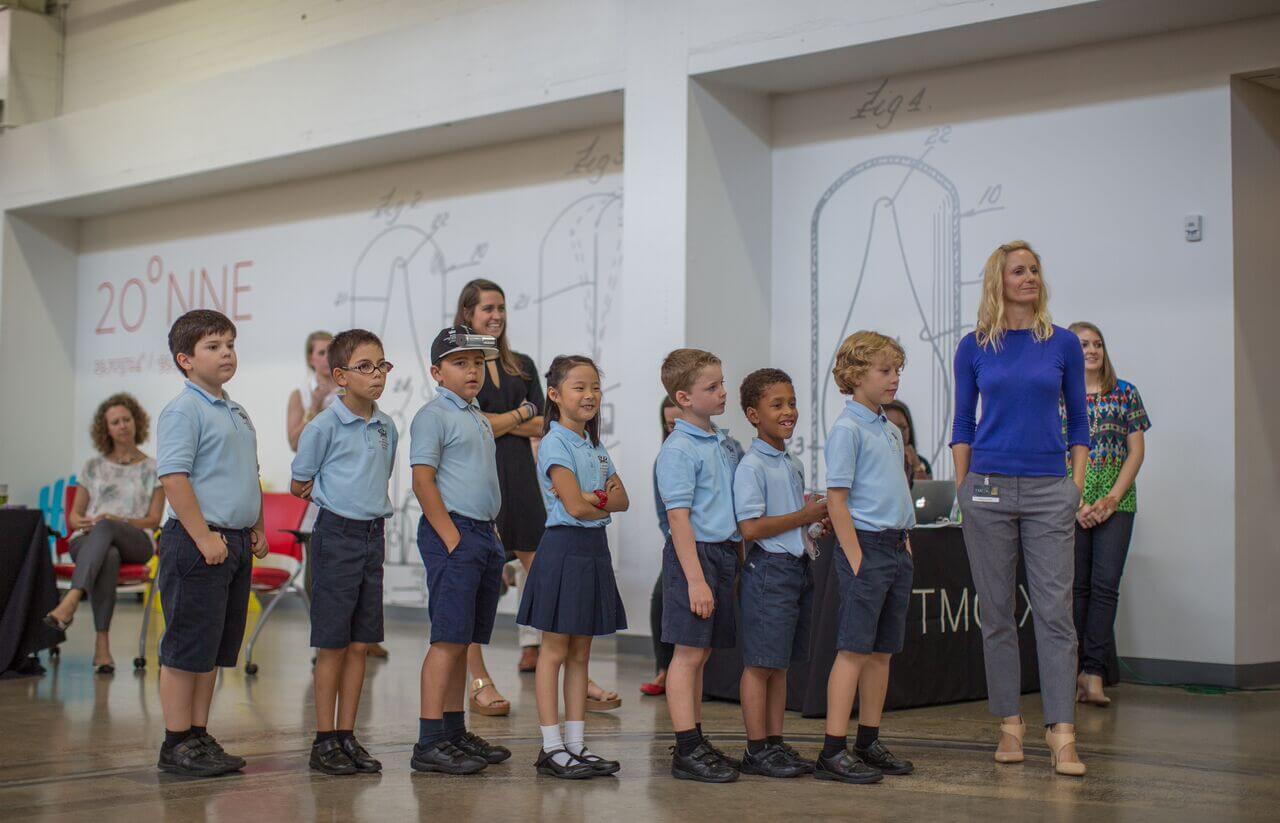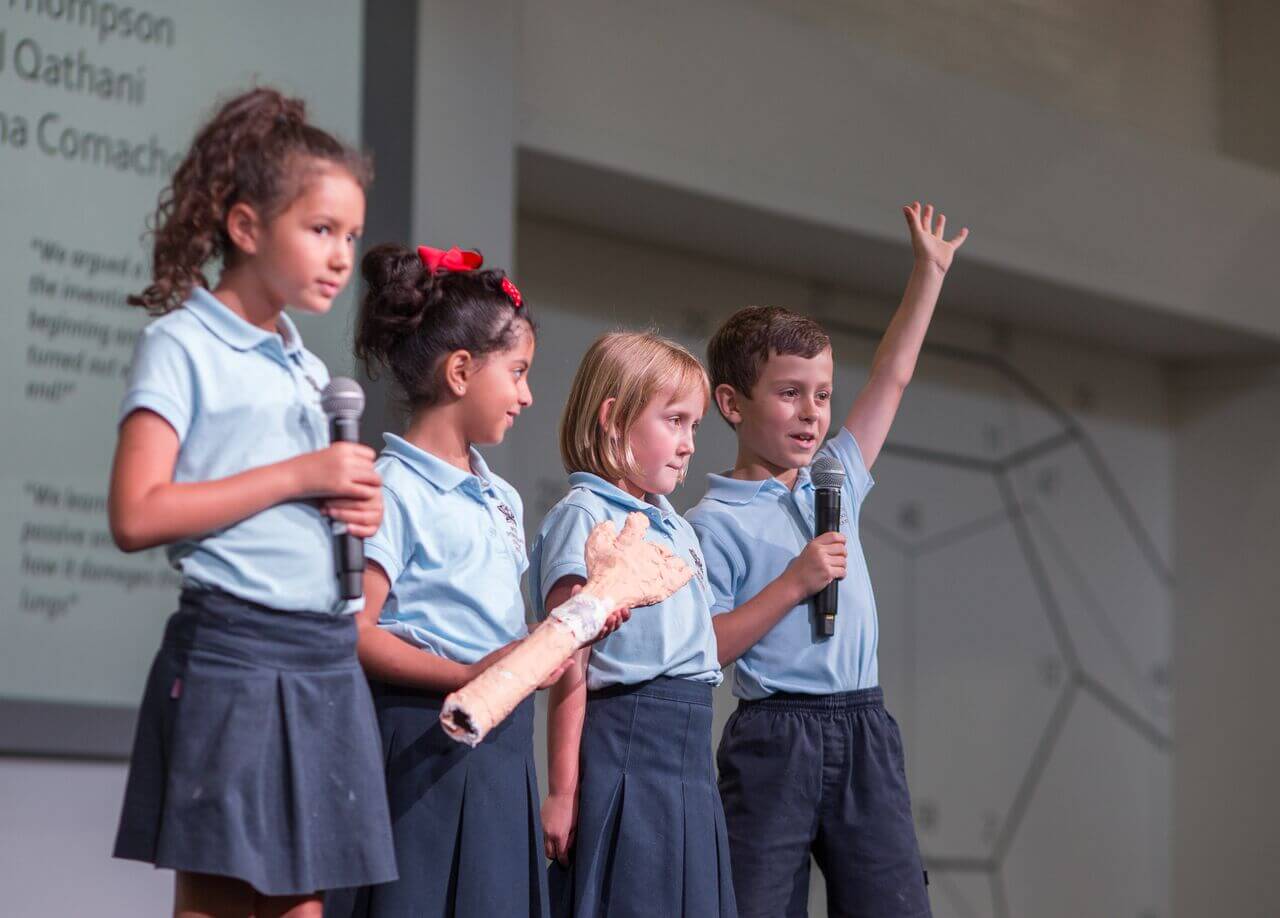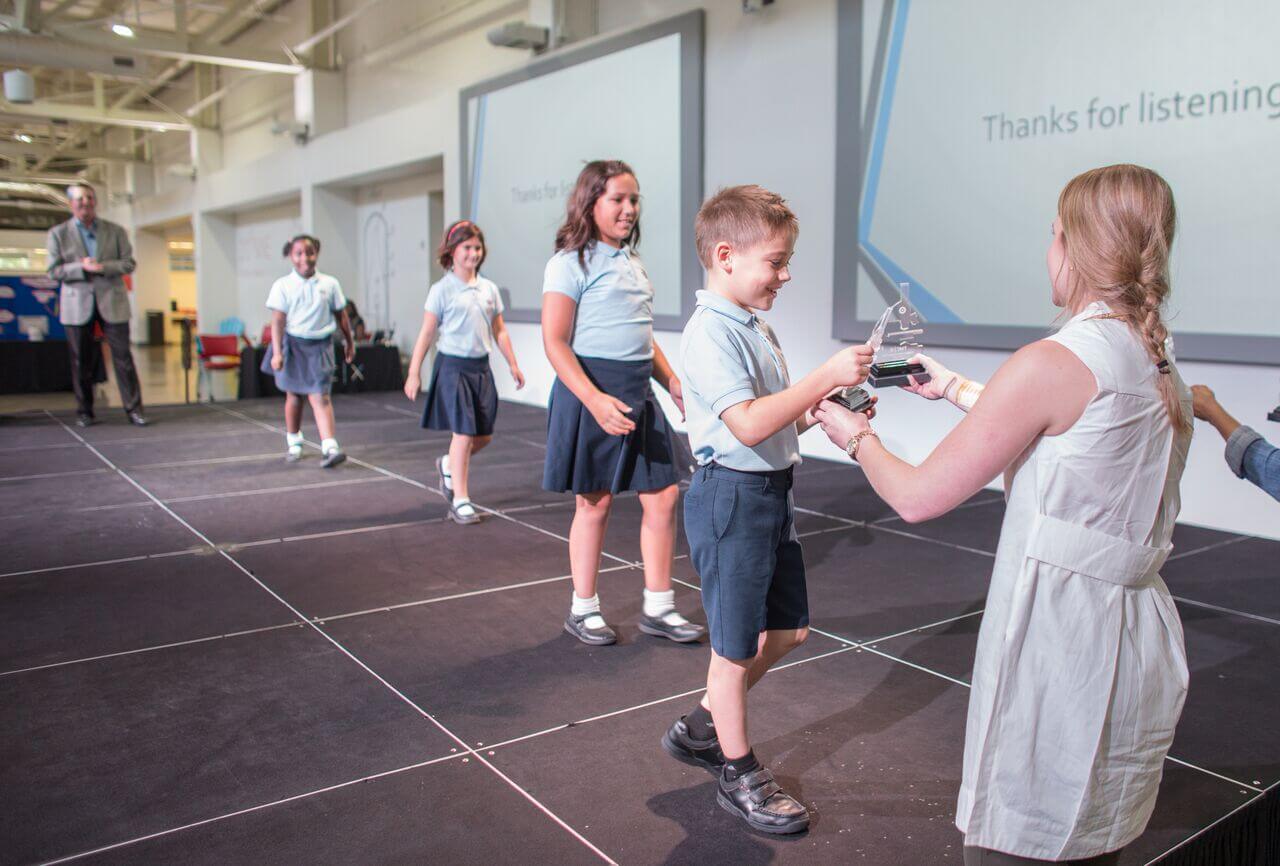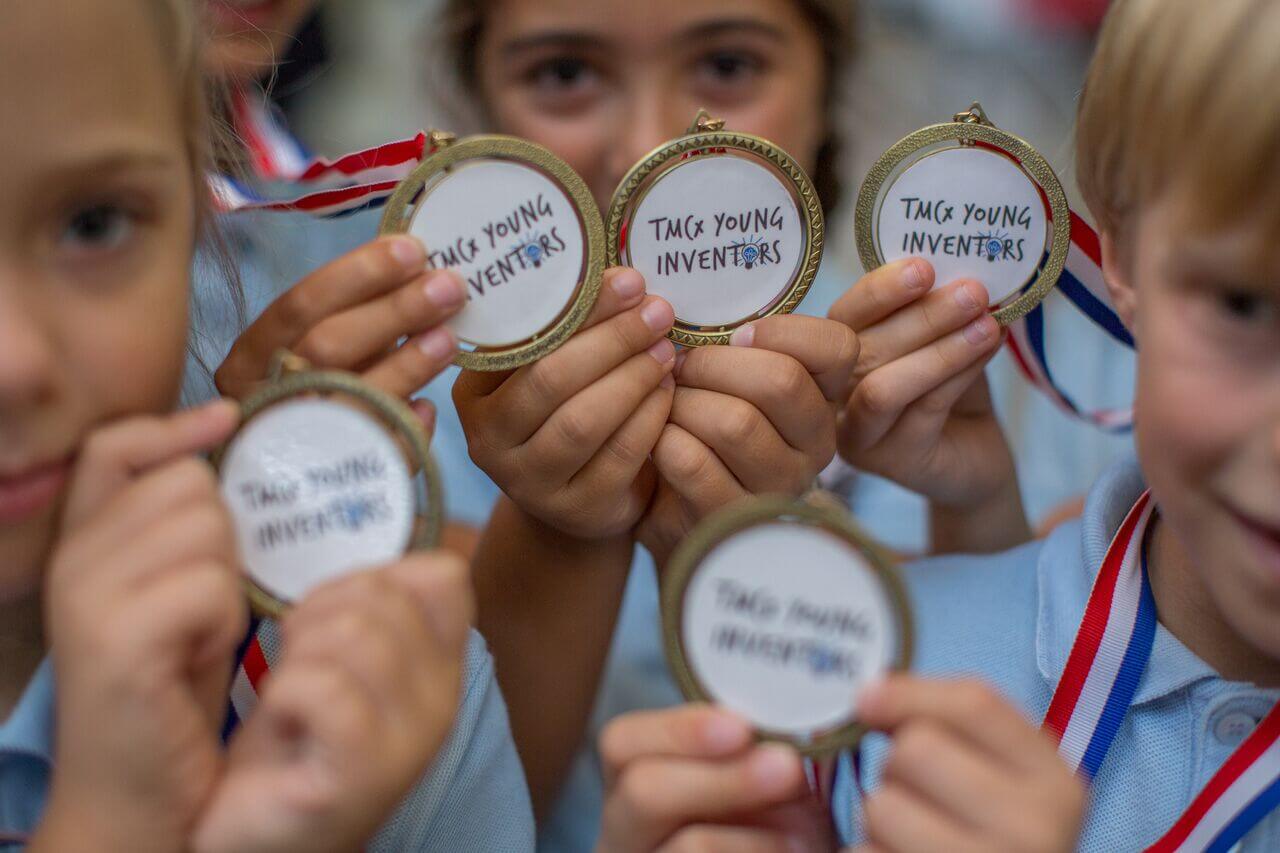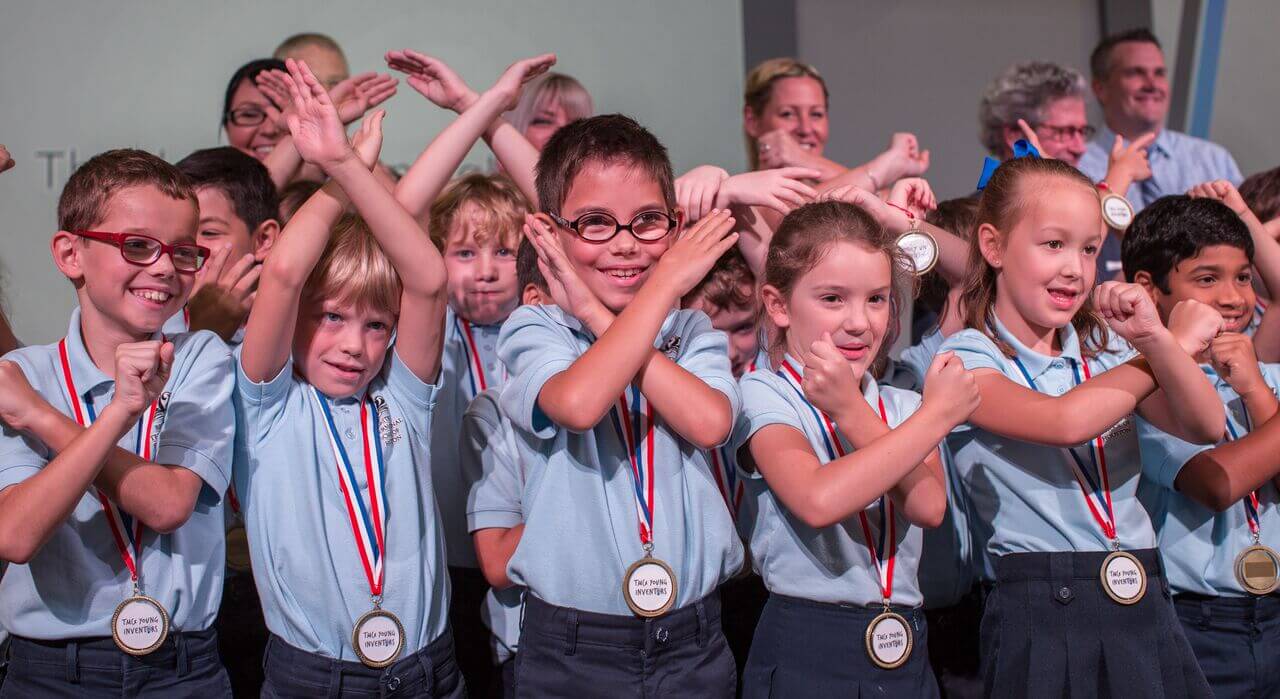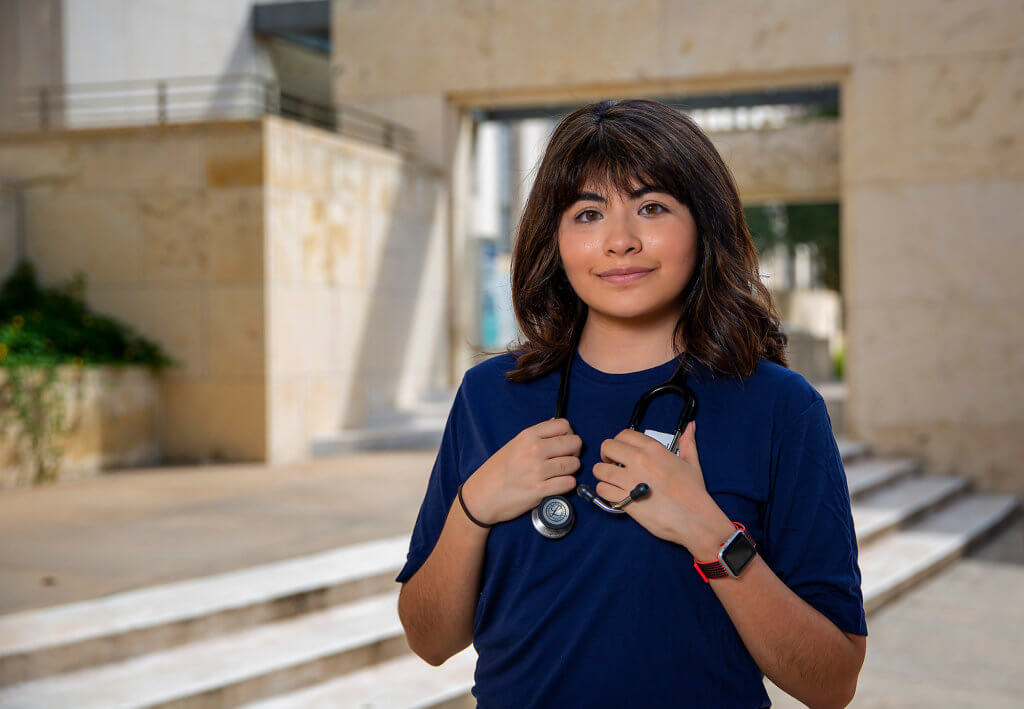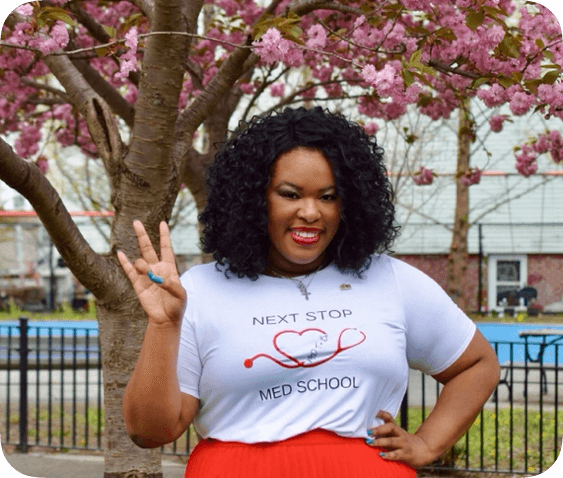Young inventors end innovation program with health care pitches
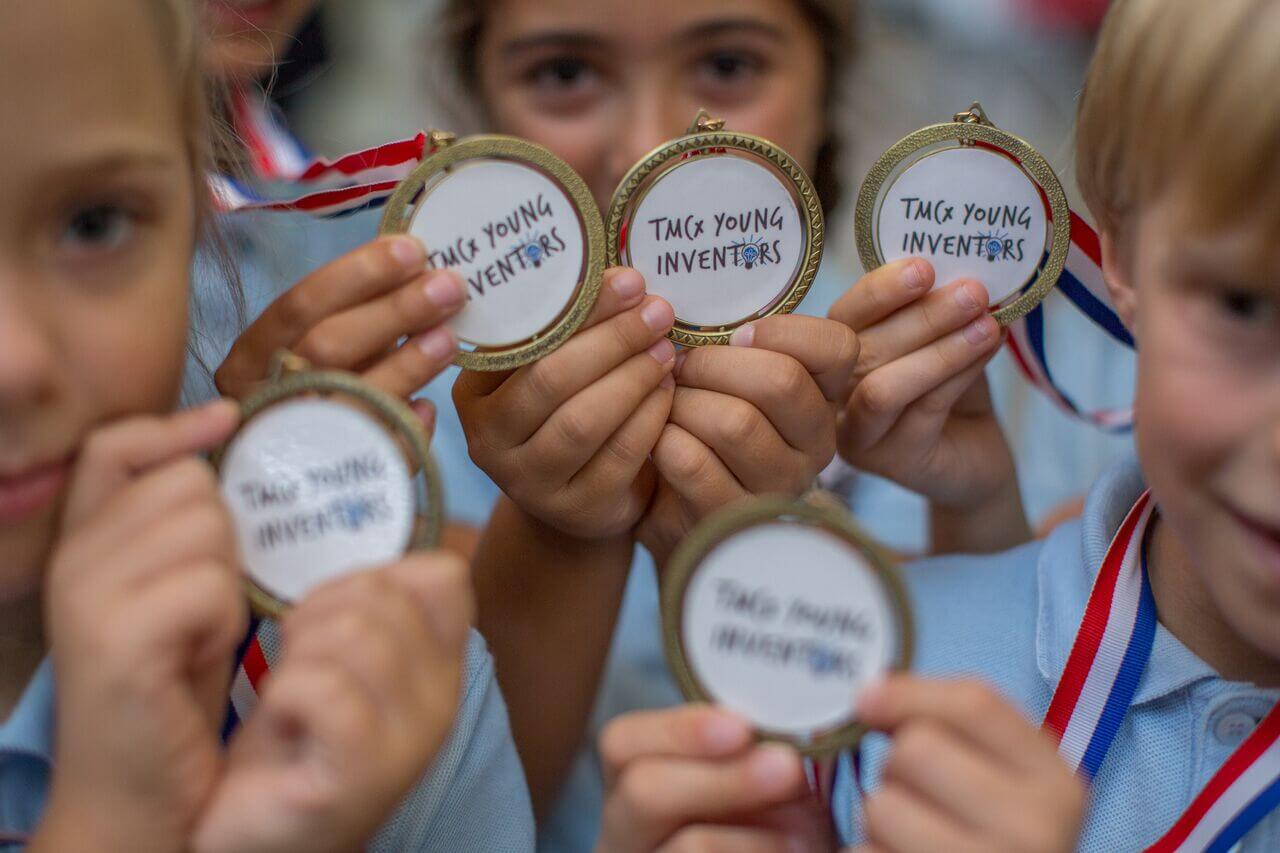
It’s typical to see startups pitching their innovative health care solutions in the TMC Innovation Institute main space, but on June 15, those startup pitches were done by groups of 7- and 8-year-olds.
Twenty-one groups of second-graders from the British International School of Houston presented their health care inventions in three-minute pitches in front of family, friends and judges.
“This is my favorite event of the year, and you are going to see fascinating things from these brilliant minds,” said William F. McKeon, executive vice president and chief strategy and operating officer of the Texas Medical Center, in his welcoming remarks. “They dream big, and they think big.”
The event was the culmination of eight weeks spent learning about innovation, and how to turn health care needs into a company. Some of the needs chosen by the groups were based on their own health care challenges.
“We talk about 21st century skills like creativity, communication, collaboration, entrepreneurial skills and resilience, and these students have demonstrated all of those skills over the last eight weeks,” said Principal Andrew Derry when wrapping up the event.
Following the pitches, the students demonstrated their inventions, which included hats to alert the wearer they are about to bump heads, an animal breathing mask to go with a sensor bracelet that measures air quality, a stuffed monkey that makes blood tests less scary and goggles to help those without sight.
The program, in its second year, is a collaboration between the Texas Medical Center and Katharine Forth, Ph.D., CEO of iShoe, which creates products to measure and track balance. iShoe was part of the first TMCx Accelerator class.
“Katey Forth is one of our inventors, and this came out of a discussion of how do we drive innovation into our schools?” McKeon said. “Katey was the point person and team leader in making this process fun and memorable.”
She developed the idea for TMCx Young Inventors when her son, who attends the school, was getting ready to start a unit on innovation. She immediately saw an opportunity, shared it with McKeon and set out to write the curriculum. It has since been presented at the Hawaii International Conference on Education, Forth said.
“Nobody is doing this with 7- or 8-year-olds,” she added. “You are seeing it in high school and middle school, but in elementary, it is usually lemonade stands. We wanted to create thinking.”
Over the eight-week program, the students perform customer interviews with kids at schools, teachers and parents. They find out health care needs, and from there, invent solutions.
“The critical part that we help them understand is that the first idea isn’t always the best, and you have to test it, and you may have to pivot, something they are embracing early on,” Forth said. “They are learning the physiology related to the problem, they learn about failure and we see a shift from a fixed mindset to a growth mindset. Now they can jump into innovating because they already have the skills.”
David Clarke, whose daughter, Annabel, was on the Fluffy Wuffy team, said he was saw the progress the team had made over the eight weeks. Fluffy Wuffy invented a pillow to help kids relax while their parents comb out lice nits.
“When the TMCx people came to her class, it really got her creative juices flowing,” Clarke said. “It is great, they get the kids to speak in front of a real-life audience, which is a life skill. I haven’t seen the whole thing, so this was the first time I got to do that.”
Judging the inventions were Erik Halvorsen, Ph.D., director of the TMC Innovation Institute; Mark Judson, founder of Judson Design Associates; Rebecca Kaul, chief innovation officer at The University of Texas MD Anderson Cancer Center; Megan Breitenwischer, senior project manager in the strategy and business planning group at Texas Children’s Hospital; and Joe Martin, technology, finance and legal reporter for the Houston Business Journal.
Each of the participants walked away with a medal, a goody bag and a T-shirt.
In addition, five teams were awarded microscope-shaped trophies in the categories of:
- Strength of Pitch: Healthy Heart Band – a band that detects and warns of a heart attack.
- Marketability: Poopi-Pop – children’s constipation medicine in a lollipop complete with a joke on the stick.
- Quality of Prototype: Push-up Pillow – a pillow with a self-inflating mechanism that helps you lift your head up.
- Degree of Impact: EcoSight – goggles to help people sense obstacles and avoid injuries.
- Innovativeness: The Monk-Hugger – a stuffed monkey that gives kids’ arms “a hug” while having blood drawn.
“We hope to be able take this program to the Houston Independent School District, and ultimately, across the state of Texas,” McKeon said. “We need to show how important it is to build young entrepreneurial minds, so they can follow their imaginations.”

